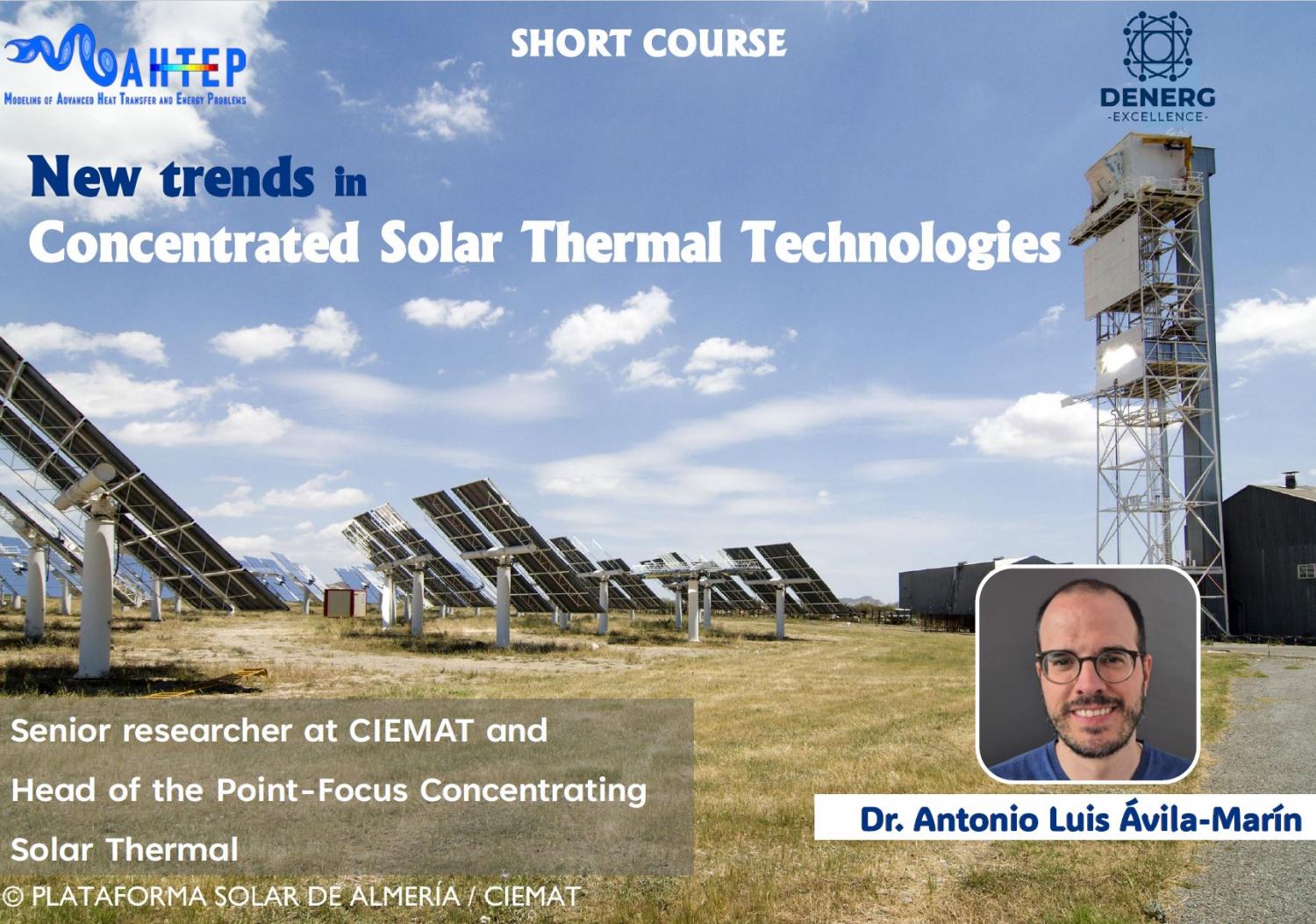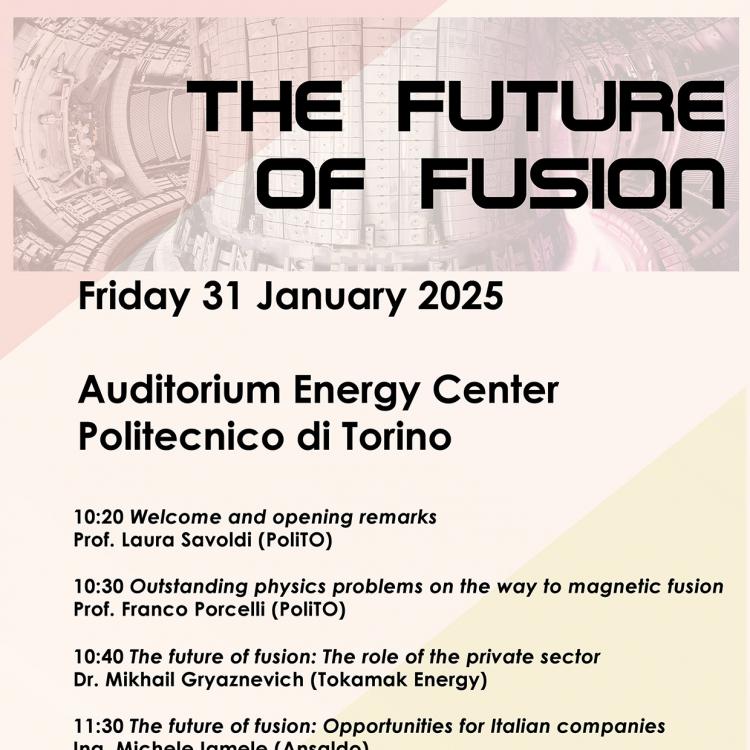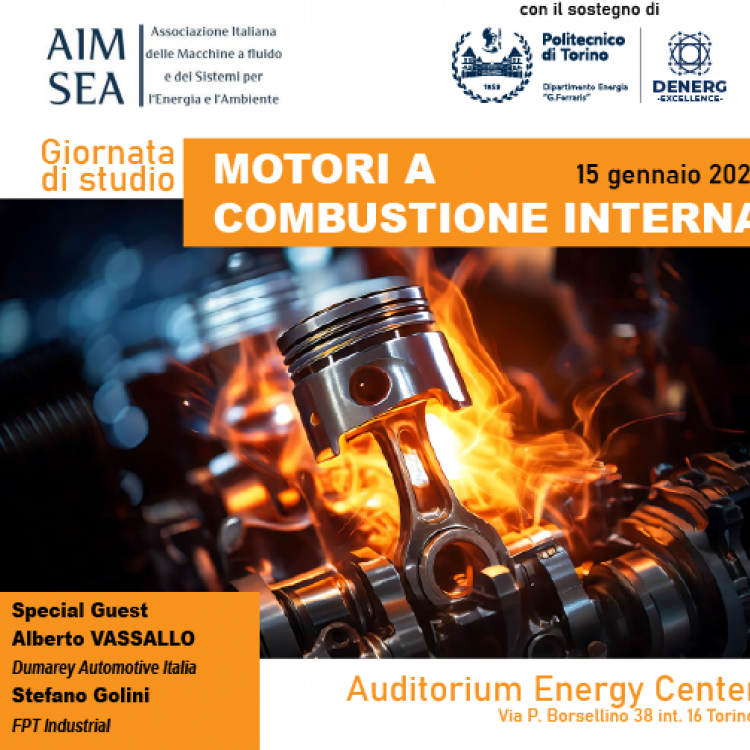Short Course on New trends in Concentrated Solar Thermal Technologies - Dr. Antonio Luis Ávila-Marín
Dr. Antonio Luis Ávila Ávila-Marín will give a series of lectures on "New trends in Concentrated Solar Thermal Technologies"
In the following the schedule of the lectures and the topic
July 1st, 11:30 - 13:30, room 13B: Concentrated solar receiver technologies and heat transfer fluid – Part 1
July 1st, 14:30 - 16:30 , room 13B: Concentrated solar receiver technologies and heat transfer fluid – Part 2
July 3rd, 11:30 - 13:30, room 13B: Volumetric Receivers: Sate of the art, fundamentals, implementation and simulation
July 3rd, 14:30 - 16:30, room 13B: From Lab to the Field: Concentrated Solar Facilities at PSA
Bio - Dr. Antonio Luis Ávila-Marín is a senior researcher at CIEMAT and Head of the Point-Focus Concentrating Solar Thermal Technologies Unit. He holds a PhD in Industrial Technologies (with International Mention and Extraordinary Award) from UNED, as well as degrees in Chemical and Industrial Engineering and a MSc in Renewable Energy. With nearly 20 years of experience in solar thermal research, Dr. Ávila-Marín specializes in the design, simulation, and testing of solar receivers, particularly open volumetric air receivers (OVARs), tubular and parabolic trough receivers, and thermal energy storage systems. He manages the Porous Media Laboratory (POMELAB) at CIEMAT-Moncloa, dedicated to the thermal and fluid-dynamic characterization of porous materials for high-temperature applications. He has participated in over 20 national and international research projects, including several EU-funded initiatives such as STAGE-STE, NEXTOWER, SFERA-III, and ASTERIx-CAESar. His work combines experimental testing at PSA (Plataforma Solar de Almería) with advanced CFD modelling (e.g., STAR-CCM+, COMSOL), focusing on heat transfer mechanisms and performance optimization.
Dr. Ávila-Marín has supervised graduate and doctoral students, contributed to international doctoral committees, and regularly teaches in postgraduate programs on solar energy. Recognized among the top 2% most-cited scientists in his field (Stanford University, 2019–2022).



